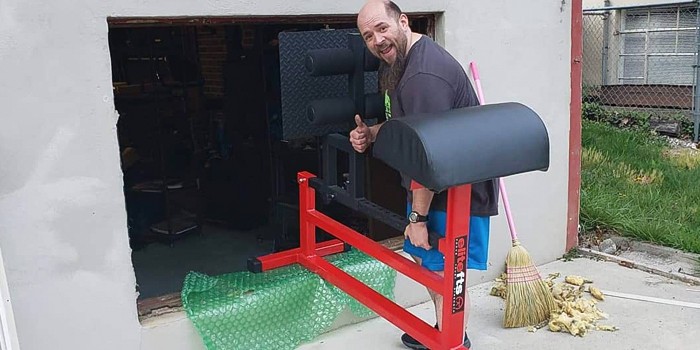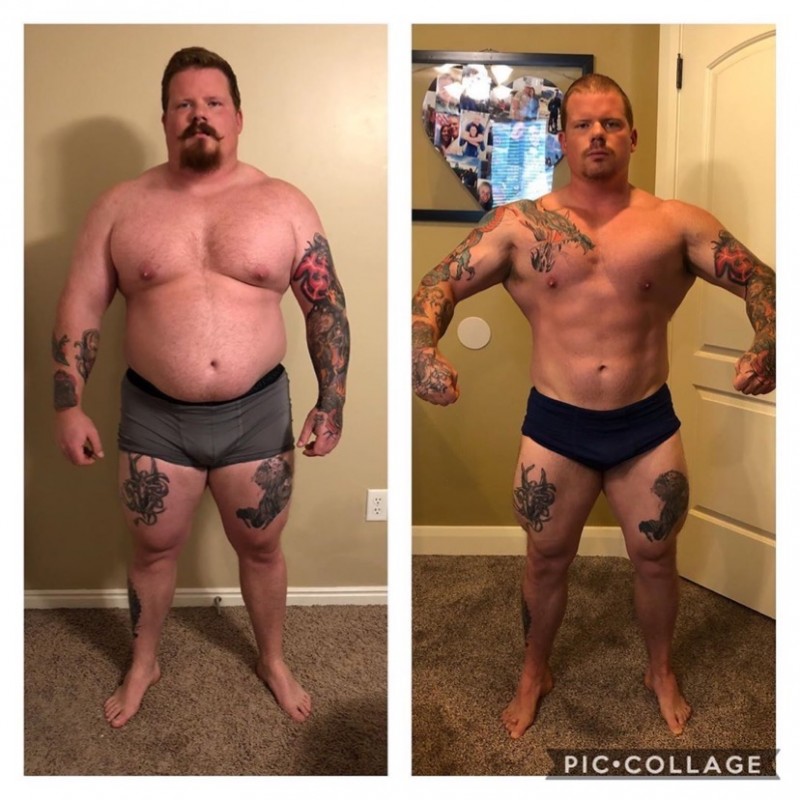
The picture above is a nutrition client that has dropped over 57lbs in about 7 months of working together. I don't necessarily want to share with you what he did to accomplish this because I feel like everyone's weight loss formula is different for several reasons. I want to share with you some of the common things I have found to lead to a successful weight loss plan.
The biggest key to success is to find a plan you can adhere to. This usually means one that includes all macronutrients in it and allows for a wide variety of food selections. This idea of minimalist eating diet plans can be great for people with gut issues or autoimmune issues to clear things up and figure out what foods may be triggering but beyond that, they build a very restrictive mindset towards dieting and food consumption. This can lead to eating disorders such as binge eating. This also means starting off with the most amount of calories possible and the least amount of cardio and lifting to yield results. Jumping into things with a huge deficit and huge amounts of training volume will lead to quick results for the first week or two but it is unsustainable and will put you at risk for losing a lot of hard-earned muscle.
The next big key is to focus on performance first and foremost and not the scale. When it comes to dieting people instantly think they should change their training up or do more work because we want to be burning the most amount of calories at all times. The problem with that is the training style that is the most effective and enjoyable for you will yield the best results whether you are dieting or gaining. When dieting you actually can't do as much and it would be counterproductive to try, those drop sets and rest-pause sets you were doing when calories were sky-high will kill your ability to recover and raise fatigue so much that your deloads will happen more often than normally would occur. If your idea is to burn fat in the weight room you are wrong, your goal should always be able to perform to the best of your abilities and to keep progressing your lifts.
The third thing to look at is making sure you keep your NEAT steady. Neat is nonexercise activity thermogenesis, all this means is the physical activity you do outside of exercise, such as walking, yard work, cleaning, grocery shopping, etc.. It has been proven that when people start dieting their NEAT levels drop dramatically, they think I've already done cardio and trained for the day so now all I need to do is sit back and relax and they don't move for the rest of the day. You don't want that to happen as NEAT is a big proponent to helping the weight loss journey. It is best to track it for 3 days and get the average of the number of steps taken, this will give you your baseline for steps in a da. Much like everything else, you will want to steadily progress that every so often as the diet is progressing.
The last point I want to make and this will be brief, don't search for optimal rather look for sustainable and enjoyable.









